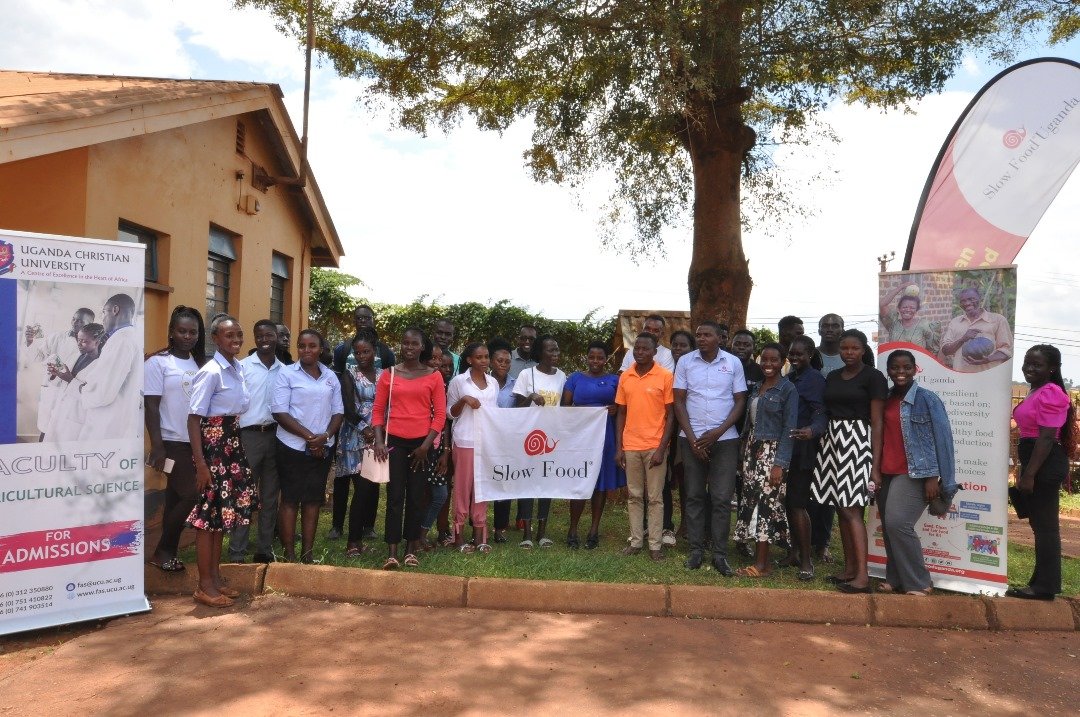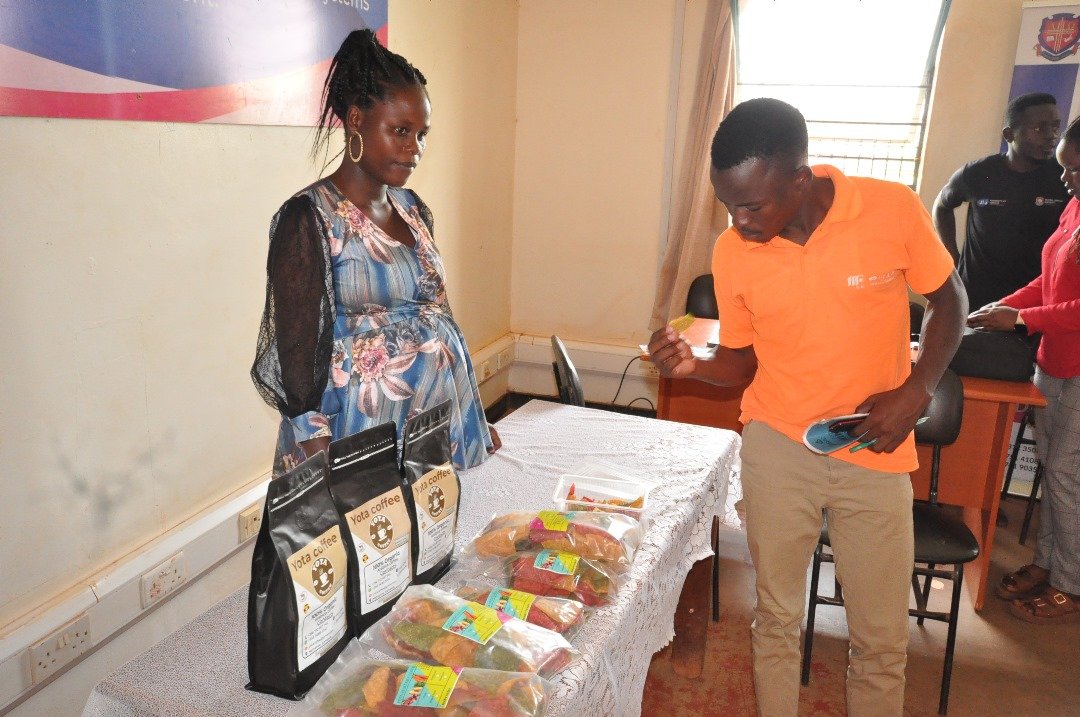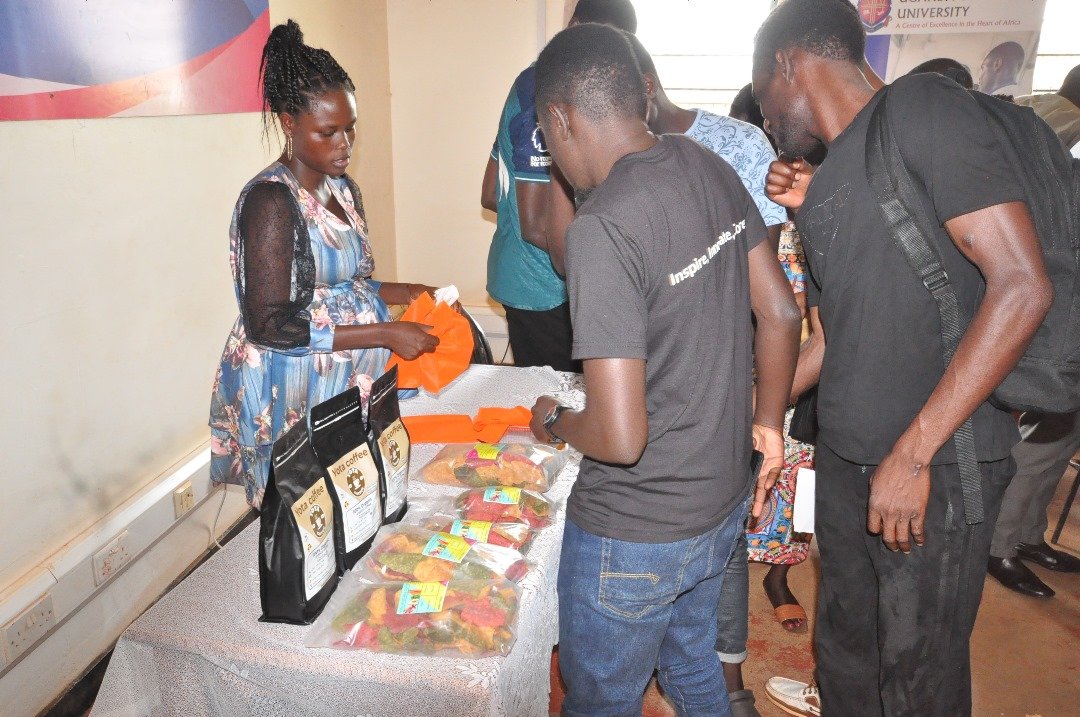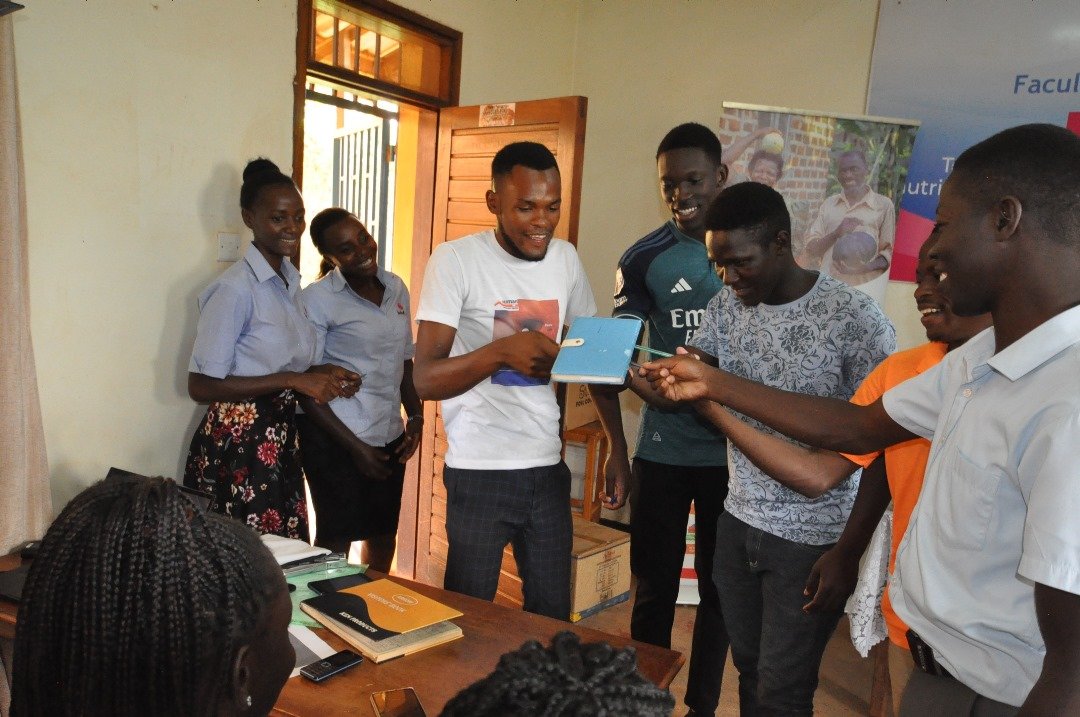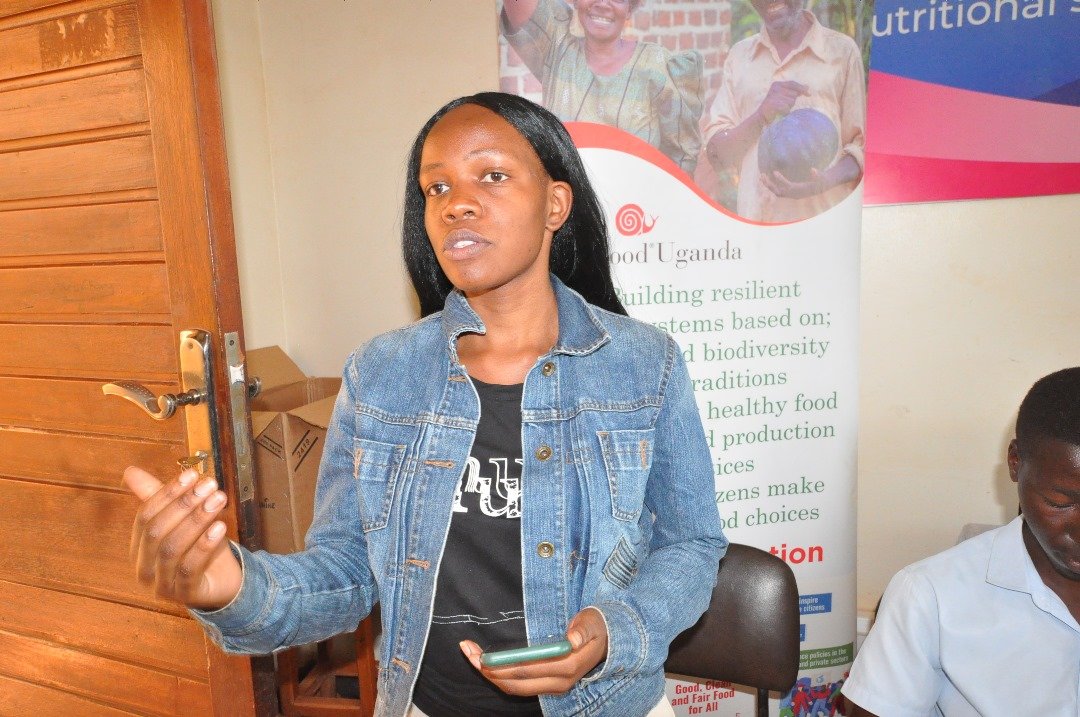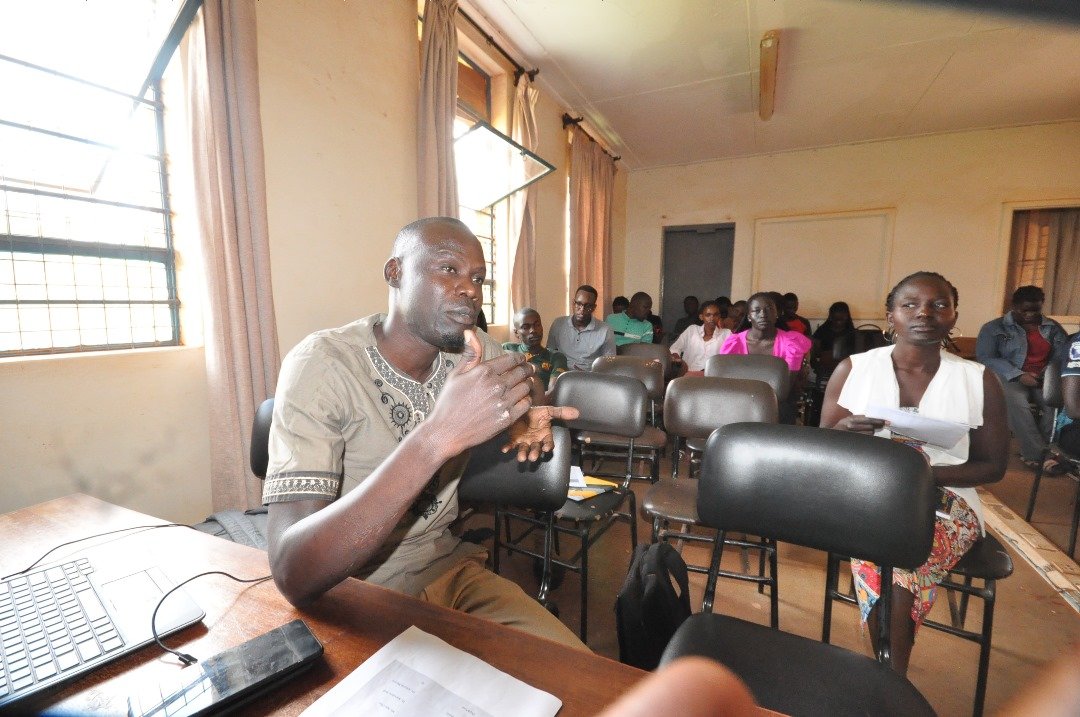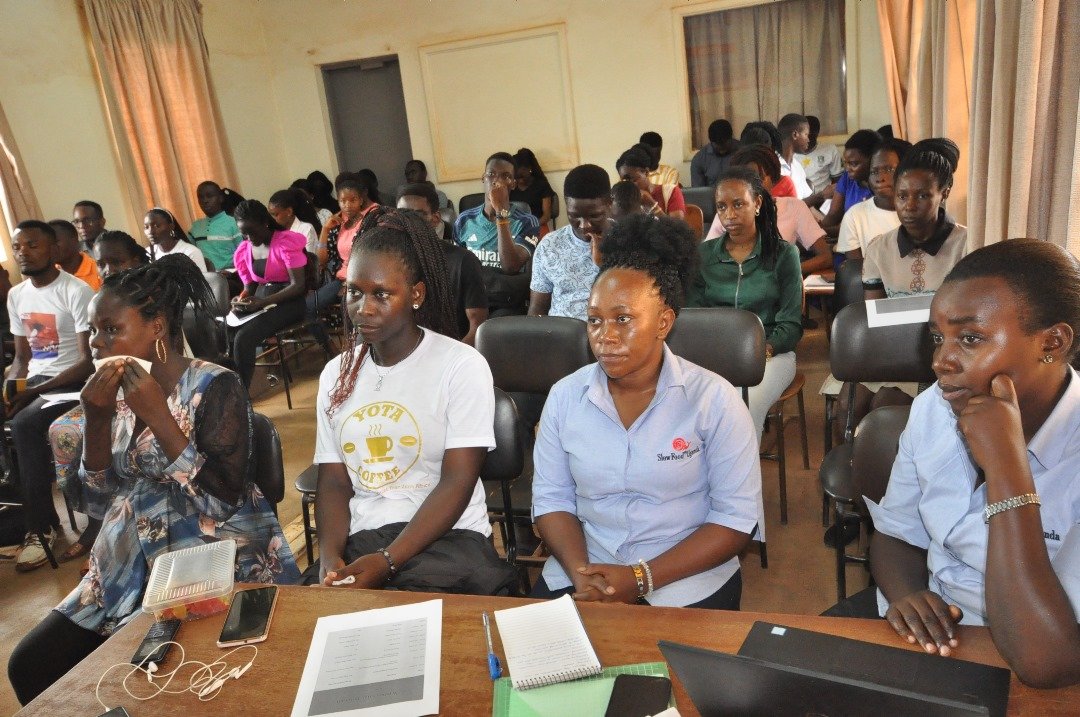SLOW FOOD UGANDA CELEBRATES THE INTERNATIONAL WOMEN’S DAY
On the 8th of March, Slow Food Uganda and Slow Food Youth Network celebrated the International Women’s Day under the theme “Empowering Women; Driving Progress in Agribusiness” joining the rest of the world in this celebration. Collaborating with the agricultural science department at Uganda Christian University, an event was organized to explore opportunities for women’s engagement in agribusiness to address existing challenges. Through enhanced participation, student at UCU dived into discussions on how Agribusiness plays a crucial role in ensuring food security creating employment opportunities and fostering inclusive growth in many low-income communities hence generating impacts on economic and social development.
This served as a platform for students to engage in conversations about the opportunities to women in agribusiness. Through sessions and panel discussions attendees explored aspects such as land access, financial inclusivity, market prospects and skills enhancement. The objective was to devise strategies that could enhance participation in agribusiness while addressing existing gender disparities.
Ove 50 students from Uganda Christian University were engaged in exploring investment opportunities in agribusiness, for women and youth involved in agroecology. The keynote speeches, by speakers focusing on agribusiness and the opportunities available for women along with inspiring stories of achievers in the field encourage students to make informed choices after post-graduation.
A focus of the discussions revolved around the role played by agribusiness in securing food supplies. Participants acknowledged that empowering women within the realm of agribusiness leads to enhanced productivity, diversified food production and improved availability of food options.
During the event, two remarkable women youth in agroecology including Hajara Nantume, the Executive Director of Balimisa Extension Services and Olive Apio, founder of Youth Opportunities to transform Africa, delivered inspiring keynote speeches. They not only shared their experiences and journeys in the field of agroecology but also showcased some of the value-added products they work on. Hajara Nantume highlighted the importance of sustainable agricultural practices and how her Extension Service promotes organic farming in communities. Olive Apio, on the other hand, shared her work in empowering youth in sustainable agri-business and uplifting rural communities. She presented value-added products like dried fruits, coffee, and organic snack products made by the youth she mentors. Both Hajara Nantume and Olive Apio’s speeches and product displays served as powerful examples of how women youth are driving progress and creating value-added products in agroecology, contributing to sustainable food systems and community development.
ACKNOWLEDGING WOMEN IN AGROECOLOGY
Throughout stages of the agricultural value chain, women constitute a portion of the agribusiness workforce contributing essential functions and resources to enhance business performance. Given that agribusiness offers a source of employment for women and the growing youth population in Sub–Saharan Africa, these groups could lead to a robust workforce and a thriving continent thereby accelerating progress.
Having opportunities for employment in the agribusiness sector is crucial. Research indicates that women play a role in agricultural value chains impacting the world economy. They engage in stages of agriculture from planting to sales employing 40% of the workforce. Women also possess 27% of the world’s wealth. Own 4 out of every 10 medium sized enterprises (SMEs) in emerging economies. However there exists a $300 billion credit gap and disparities in access to resources for women globally leading to low productivity. Addressing these discrepancies could enhance productivity by 2.5–4% in developing countries potentially reducing hunger by 150 million people. Providing women with farming resources and skills can benefit businesses. Drive prosperity across the value chain.
Considering the information provided above, it is fitting to acknowledge women in Agroecology for their dedication to advancing the field. Their diverse agricultural initiatives demonstrate their contributions that go beyond requirements, for agribusiness advancement.
Slow Food Uganda appreciates the contributions of the Board Chairperson Ms. Hanati Kasula, Sarah Nkabi, Noel Nanyunja, Mugerwa Florence, Tr. Jennifer, Tr. Irene Muhereza and all the dedicated women garden coordinators, in promoting agroecology. These exceptional women have not only excelled in agribusiness but also played a significant role in advancing sustainable agricultural practices.
During our social media campaign, women had the opportunity to share their perspectives and experiences throughout the day. Many of them shared messages highlighting their roles in driving their country’s development
“In celebration of International Women’s Day, it is crucial to support women in agriculture to achieve the goal of Zero Hunger as outlined in the SDGs. Empowering women is essential for building a food system since they are often the primary food producers and caregivers at home ” emphasized Slow Food Uganda’s Board Chairperson Hanati Kasula.
“We acknowledge how far we have come under guidance! As we celebrate, let’s focus on bringing this topic to the forefront in our households and school communities so that children can learn about food management and production gain exposure and develop an understanding of how crops grow are harvested and transported. Happy Womens Day! expressed Mugerwa Florence, from Victory Urban Garden for Women in Entebbe.
“It is crucial to ensure that women have access, to the resources and technologies to enhance productivity in order to address gender disparities in the industry.” Sarah Nkabi, an urban farmer from Mukono Town.
Monica Nabasa, who works as a program officer, for Food Education at Slow Food Uganda emphasized the significance of acknowledging gender roles in today’s society on Women’s Day. She highlighted that women don’t have to strive for equality with men to be empowered individuals. It’s crucial for both men and women in leadership positions to advocate for gender equality ensure access to resources and opportunities support businesses run by women and actively listen to woman’s perspectives when making decisions that impact food systems.

